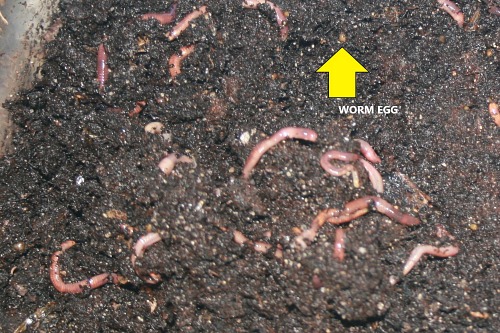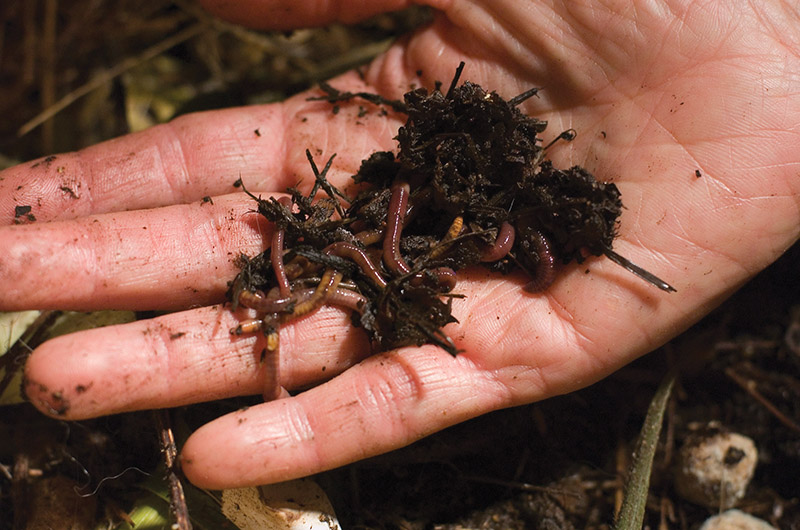Red Wiggler Worms to buy - Sustainable Waste Management Option
Red Wiggler Worms to buy - Sustainable Waste Management Option
Blog Article
Red Wiggler Worms Demystified: Opening the Tricks of Vermiculture for Greener Living and Nutrient-Rich Soil
In the realm of lasting methods for enhancing soil quality and advertising eco-conscious living, red wiggler worms play a crucial yet commonly ignored function. These humble animals possess the amazing ability to change natural waste right into nutrient-rich spreadings that act as a potent all-natural plant food. By diving right into the globe of vermiculture, one can uncover a variety of advantages that expand much past standard composting approaches. Understanding the intricacies of looking after these worms, optimizing their atmosphere, and harnessing their castings can result in a greener lifestyle and healthier soil for plants to prosper.
The Duty of Red Wiggler Worms
Red Wiggler worms play a vital function in composting systems by successfully breaking down organic issue into nutrient-rich spreadings. These ravenous eaters consume a selection of organic materials, such as kitchen scraps, yard waste, and paper items. As they feed, the worms' gastrointestinal procedures damage down the organic issue into a fine, dark, and nutrient-dense material referred to as worm spreadings or vermicompost.
The spreadings produced by Red Wiggler worms are highly advantageous for dirt health and wellness and plant growth. They are rich in crucial nutrients like phosphorus, potassium, and nitrogen, which are essential for sustaining healthy and balanced plant development. Additionally, worm castings consist of advantageous microorganisms and enzymes that assist boost dirt framework, rise water retention, and enhance nutrient uptake by plants.
Benefits of Vermicomposting

Additionally, vermicompost, the nutrient-rich end item of vermicomposting, serves as an exceptional natural plant food and dirt conditioner. It enhances dirt structure, enhances soil aeration, and increases soil moisture retention. These residential properties add to much healthier plants with more powerful origin systems and far better resistance to bugs and illness. Vermicompost additionally enhances the soil with crucial nutrients like phosphorus, potassium, and nitrogen, advertising plant growth and overall dirt fertility.
Additionally, vermicomposting supports lasting gardening techniques by offering a natural and chemical-free option to artificial plant foods. Red Wiggler Worms. This eco pleasant method not just enriches the dirt yet also helps minimize dependence on harmful chemicals, promoting a greener and a lot more lasting way of gardening
Establishing Up a Worm Container
When establishing a worm container for vermicomposting, correct setup is vital to make sure the success of the composting procedure. The very first step in establishing a worm container is selecting an appropriate container. This can be a plastic container or wood box that offers enough area for the worms to move and has proper water drainage holes to avoid waterlogging. Next off, a bed linen product such as shredded paper, cardboard, or coconut coir must be included to the container. This bedding gives a comfortable setting for the worms and assists maintain dampness levels.
After adding the bed linen, introduce the red wiggler worms to the bin. It is recommended to start with a handful of worms and progressively increase as they increase. The worms must then be given with food scraps such as vegetables and fruit peels, coffee premises, and eggshells. It is important to stay clear of adding meat, dairy, oily, or salted foods to avoid drawing in insects and creating unpleasant odors.
Frequently keep track of the dampness levels and temperature level in the worm container to ensure ideal conditions for the worms. With correct configuration and maintenance, the worm container will efficiently convert natural waste into nutrient-rich compost for your plants and garden.
Harvesting Worm Castings
To effectively gather nutrient-rich worm castings from your vermicomposting system, a systematic harvesting approach is crucial. There are a couple of key steps to comply with to guarantee an effective process when it comes time to collect the worm spreadings. Firstly, quit adding fresh food scraps away of the worm bin for a number of weeks before collecting. This encourages the worms to migrate to the side with fresh bedding and food, check this site out making it less complicated to dig the castings from the opposite.

Troubleshooting Common Issues
Identifying and dealing with common difficulties that may occur during the vermicomposting process is crucial for keeping a effective and healthy and balanced worm container. Adding excess food scraps can lead to a buildup of wetness and acidity in the worm bin, potentially damaging the worms. An additional problem is unpleasant odors rising from the worm container.
Furthermore, if the worm population is decreasing or the worms show up harmful, it could be as a result of ecological stressors such as extreme temperature levels or pH levels. Keeping an eye on these elements and making necessary changes is important for the well-being of the worms. By fixing these common issues immediately, vermicomposters can make sure a smooth and effective vermicomposting process while maintaining a prospering worm population.

Final Thought
In final thought, red wiggler worms play a vital duty in vermiculture by damaging down organic matter into nutrient-rich dirt. Setting up a worm container is vital for effective vermiculture, and collecting worm castings offers important garden compost for gardening.
As they feed, the worms' gastrointestinal procedures break down the organic matter right into a penalty, dark, and nutrient-dense product known as worm castings or vermicompost.
The spreadings generated by Red Wiggler worms are very valuable for dirt health and plant growth. Adding excess food scraps can lead to an accumulation of wetness and acidity in the web worm bin, potentially hurting the worms.Furthermore, if the worm population is decreasing or the worms show up unhealthy, it might be due to Get More Info ecological stress factors such as severe temperature levels or pH degrees. Establishing up a worm bin is important for successful vermiculture, and gathering worm spreadings offers important compost for gardening.
Report this page